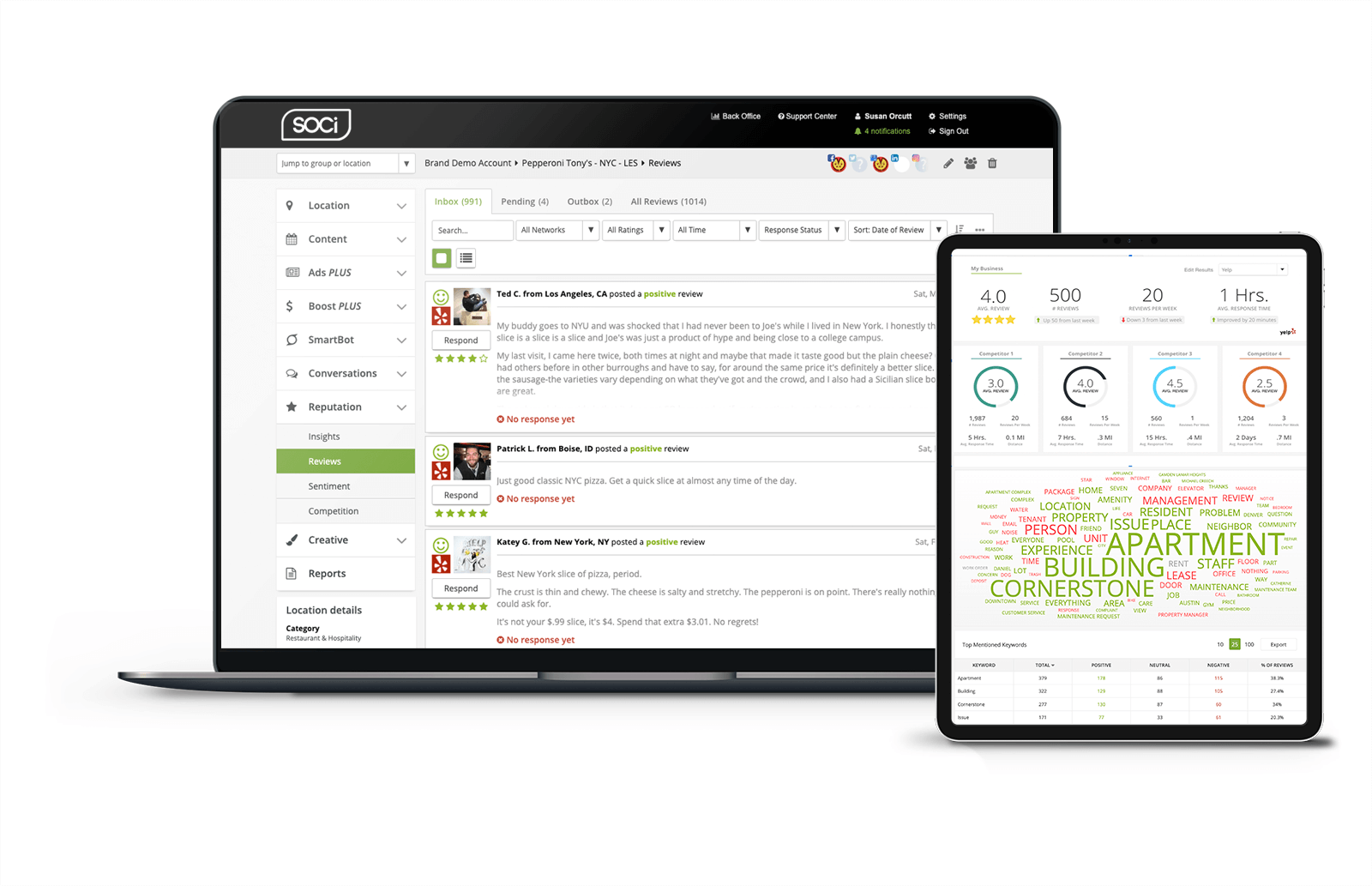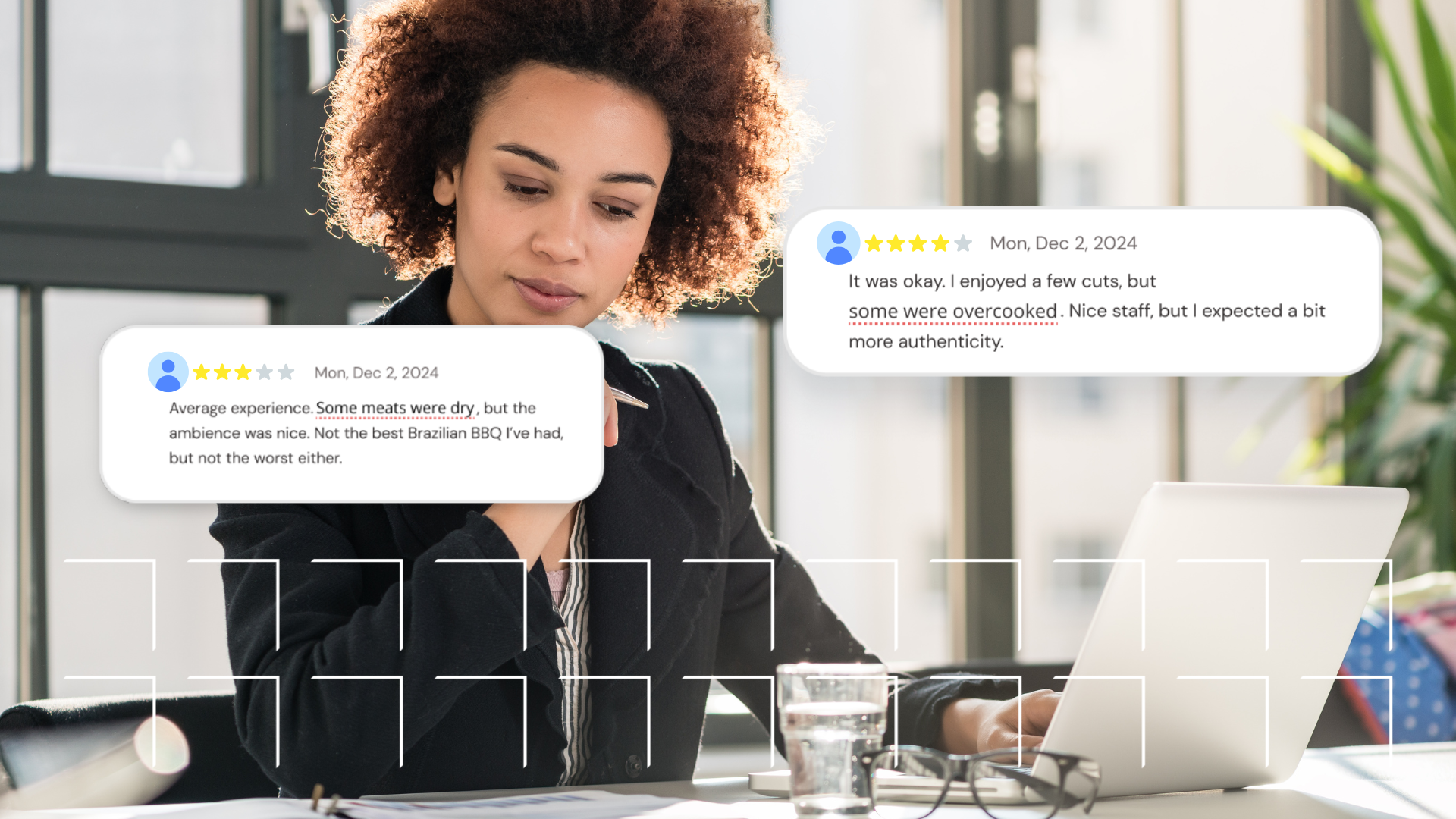Multi-Location Leaders in Reputation Management & What They’re Doing That’s Working For Their Business
Multi-Location Leaders in Reputation Management & What They’re Doing That’s Working For Their Business
It can be challenging to manage your brand’s reputation at the local level with 100s or 1000s of business locations. You’re probably wondering what secrets brands with top reputations are using to maintain success. Throughout this blog, we’ll look at the multi-location leaders in reputation management and break down what they’re doing that’s working. We’ll also share a comprehensive list of the top tactics used by all of the leaders so you can start implementing them into your own business’s reputation management strategy to take your business to the next level.
To get started, we’ll go through the top five leaders, starting with number five, and break down what they’ve done to develop a winning reputation.
5. Home Depot
Home Depot kicks off our top five leaders in reputation management. With 2,000+ stores across the country, Home Depot is one of the most recognizable multi-location brands in home improvement. One of the main reasons that Home Depot made the list was its focus on local communities. Throughout this blog, you’ll find that a focus on localization is a common theme.
Home Depot is known for its community projects, and pre-COVID it was also known for its in-store classes. For instance, the Home Depot has The Home Depot Foundation, which addresses the skilled labor gap, among other charitable causes at the local level. Giving back to the local community shows consumers in your area that you care about them and want to give back to the place that has supported your business.
Home Depot has also made an effort to focus more on its digital presence, which is critical in today’s environment. This focus on their digital presence has shown remarkable results, with Home Depot’s online sales increasing by 80 percent over the past year. Does your multi-location business have a strong digital presence? Are you engaging with consumers through local social media channels? Do you respond to reviews at the local level? If not, these are things your multi-location business must consider to stay competitive.
4. Publix
Publix makes the list at number four. Publix is one of the fastest-growing supermarket chains in the United States, and for a good reason. Publix has been able to maintain such a solid reputation by providing high-quality products at low prices. While low prices are great, and most of us likely aim to have fair prices at our multi-location businesses, there has to be more to their reputation.
Publix has a local program called Publix Local Endcaps, where they incorporate various products from local vendors in their stores. This is one way that Publix shows that they care about the community and give back to local businesses. Our recent Top Restaurants in Localized Marketing report found that throughout the pandemic, consumers have expressed a desire to go local. Rather than acting like a big grocery store that is corporately owned, Publix ensures that each store has local components that resonate with the area it serves.
Similar to Home Depot, Publix also gives back to the community. Publix supports organizations that focus on youth, education, reducing hunger, and alleviating homelessness. While you might not think of a grocery store as a business contributing to local communities, Publix proves otherwise.
3. L.L. Bean
L.L. Bean makes the list at number three and is in the retail industry. One of the main reasons L.L. Bean makes the list for its commitment to customer service. L.L. Bean makes each customer feel important across all of their locations. Whether it’s responding to a negative customer review, providing consumers with the correct information through their local listings, or upholding their return policy, L.L. Bean strives to keep their customers happy through prioritizing online reputation. If your multi-location business is looking to build a positive online reputation, customer service is essential.
Not only does L.L. Bean makes all consumers feel acknowledged, but they also have a Community Fund that supports cities in Maine, which is where L.L. Bean was founded. Through this Community Fund, L.L. Bean pledges money to health, human services, and educational organizations in Maine. Giving back to the community that made them successful has always been a top priority at L.L. Bean.
2. Patagonia
Patagonia is a very recognizable brand across the nation. Patagonia is an outdoor clothing brand that comes in at number two on our list. Patagonia has maintained an excellent reputation at each of its business locations for a variety of reasons. For instance, Patagonia has made an effort to develop a user-friendly digital experience for consumers, making it easy for them to shop online. On their website, Patagonia shares what percent of each product was created by recycled materials, and they also provide an option for you to browse similar products that are used. In today’s world, digital presence is necessary, and Patagonia has it figured out.
Not only does Patagonia make products through recycled materials, but they also focus on giving back to environmental and sustainability causes. These are issues that Patagonia’s customer base cares about, strengthening its reputation. To help their customers find local groups that care about the environment, Patagonia has a page on their website where customers can search for local grassroots groups to fight the environmental crisis in areas near them. Patagonia’s focus at the local level has contributed to its overall reputation.
1.Wegmans
Wegmans, a grocery store chain with 100+ locations across the country, tops our list at number one. This is the second grocery store brand to make the top five multi-location leaders in reputation management. Wegmans holds the number one spot primarily because its high-quality Wegman’s brand products are known for being just as good as name brands. Wegmans also prides itself on working with family farms in local communities and focuses on helping local food banks. According to its website, Wegmans donates 14.5 million pounds of food to support these local food banks.
In addition to giving back to the community and employing local farmers, Wegmans strengthens its reputation through exemplary customer service. Like the brands mentioned above, Wegmans cares about its customers at the local level and ensures that they’re taken care of. Whether it’s by helping an elderly customer out to the car with their groceries or solving an issue a customer faces, they make sure that every customer feels important. While Wegmans is a grocery store, customer service should be a top priority regardless of your industry if you want to maintain a positive reputation.
Common Themes Among Leaders in Multi-Location Marketing
Now that we’ve looked through the leaders in reputation management let’s analyze the common themes that we’ve seen across the board. Each of the leaders in reputation management made sure to incorporate the following:
- A contribution back to the local community. Whether through donations or volunteer hours, each of our leaders made sure to give back to the local communities they have a business in.
- While this should be done because your business wants to give back, it does provide brand authenticity, and will ultimately increase brand loyalty among your local communities.
- A focus on keeping their consumers happy. While L.L. Bean focused on customer service to ensure that consumers had a positive experience, Publix incorporated local items in their grocery store that local consumers would be familiar with. If you’re focused on keeping your consumers happy, this should positively impact your ratings and reviews.
- Ratings and reviews are the number one factor consumers consider when making a purchasing decision, so a strong online reputation is key.
- High-quality products. Although this is no surprise, high-quality products, regardless of your industry, is a must for maintaining a strong reputation.
- For instance, do you have sustainable products like Patagonia? Are your products focused on improving the environment, or is there a certain material you’re using to create your products that makes them more durable than competitors?
How many of these tactics is your multi-location business currently implementing when it comes to reputation management? To become your own leader in reputation management, following the tactics above is key. As a multi-location business, we understand that reputation management can be difficult, which is why SOCi is here to help.
SOCi’s streamlined reputation management software is built specifically for multi-location businesses. The software can help you manage and respond to all of the reviews your company receives in a single platform while also providing you with sentiment analysis around the reviews. In addition to our reputation management software, SOCi has various additional features that allow your multi-location business to manage its reputation effectively. From social listening to local social and local listings, there’s a lot to consider. For more information on how SOCi can help you create a winning localized marketing strategy, request a demo today!






